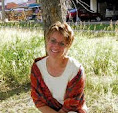Awakening, the next ‘big idea’ OR, Muddling of the mind
Some of you may remember
that every summer, at the end of August, before school starts, I present a book
talk to a group of elementary teachers around a ‘big idea’ that they've selected to teach to K-6 throughout the year.
The principal calls it ‘a book talk on steroids’. I think that’s good, right?
This year’s big idea is
AWAKENING.
It’s big alright.
Every second kids book can
somehow be linked (at least in my head) to this idea of awakening.
Here are a few of the ideas
that I immediately came up with:
beginnings, epiphany,
perceptions, fresh starts, awareness, new life (nature: spring/seasons, birth,
hatching, blooming, budding, etc.) start of the day, new ideas, insight,
understanding, enlightenment, openings/openness, revolution (political, Arab
Spring).
Here are a few activities,
actions, or thought processes I associated with awakening:
creating/creativity,
innovating, activism, inventing, blooming, spontaneity, capturing imagination,
opportunities, gaining perspective, tapping into the subconscious, critical
thinking.
Here are a few of the
opposites that I considered important to think about, too:
sleeping, decline/decay,
shutting down/out, death(?, underworld stories), ignorance, worry/fear,
narrowing.
Those are my thoughts.
When I received the planning
notes from the teachers last June I found many of my ideas matched with theirs,
which was a relief. As well, I noticed
that this year there was a lot more synchronicity between the grades compared
to previous years. The way I'm interpreting these notes is coming up with a focus on the internal processes of
self awareness, mindfulness, living in the moment, awareness of others (as in
community and society, local and global), empathy,
how the brain works, and
well being. All of this somehow connects to developing meaning and purpose in
one’s life.
Each grade also presents
some specific ideas that more closely connect with the Alberta
curriculum, current events, and Calgary
So back to translating all
of the above to books teachers can use in the classroom. Well, there’s a lot that could potentially
work. Here are a few titles that I think
will be solid additions in the classroom:
8th Grade Superzero by Olugbemisola
Rhuday-Perkovich – Great choice for upper elementary that covers
many of the aspects about awakening.
A Bus Called Heaven by Bob Graham – K-3, a terrific story that will connect personal
action with community.
The Evolution of Calpurnia Tate by Jacqueline Kelly. – For grades 5-8. An
historical novel that explores the nature of gender, family and awareness of
the natural world.
Have Fun Anna Hibiscus by Atinuke. – For grades 3-5. Nothing like travel to ‘awaken’ one to how
other people live and discover things about oneself at the same time. An African girl comes to Canada
Home of the Brave by Katherine
Applegate – Grades
5-7. Told in narrative verse, we too
experience culture shock as a young Sudanese refuge figures out the complexities
of living in a large American city.
I Know Here by Laurel Croza – For K-3 level about
really knowing your home and community especially the physical landscape. (Canadian)
Love That Dog by Sharon Creech – For grades 3-6. Another story told in verse that shows Jack’s
deepening appreciation for poetry and how poetry gives him a voice and a way to
handle life’s problems.
My Map Book by Sara Fanelli – K-2. I'm pretty sure I've recommended this one
before to the teachers at Nellie McClung.
I use it a lot in many of my workshops.
Works with the geographical thinking component of social studies as well
as identity, family and what’s important in this particular child’s life.
Zen and the Art of Faking It by Jordan Sonnenblick – Another good choice
for upper elementary that especially touches on identity, empathy and activism
with a Buddhist kick.

.jpg)




















0 comments:
Post a Comment